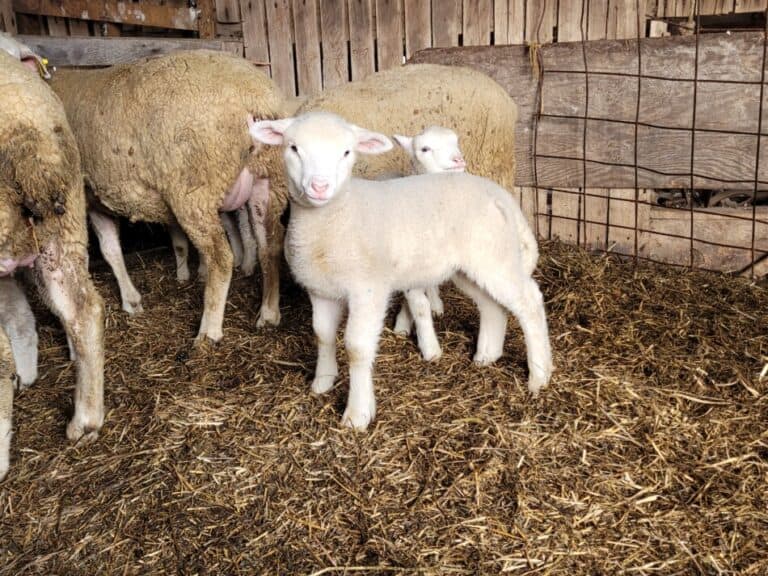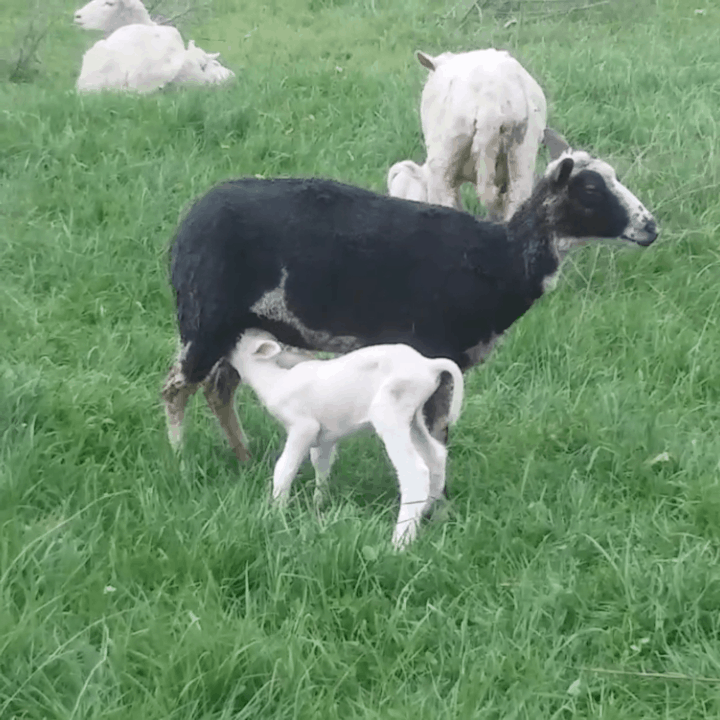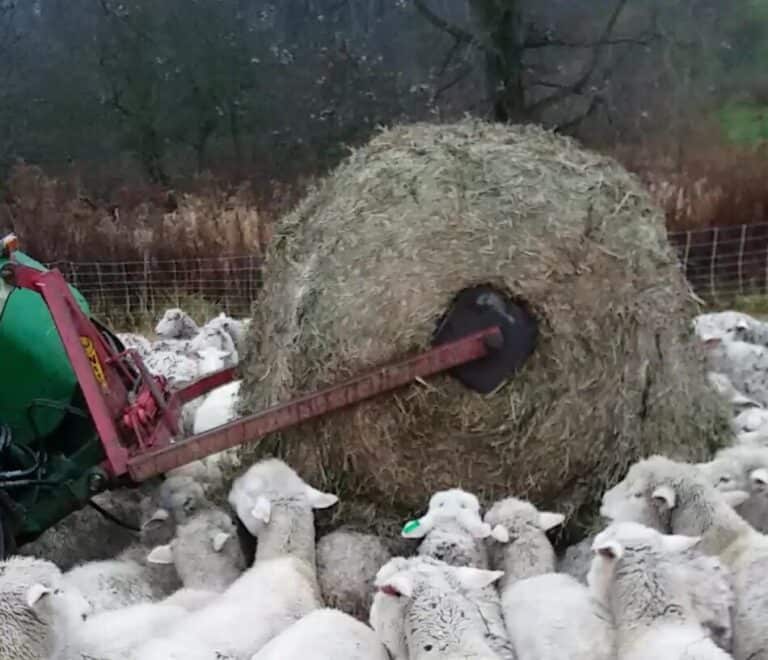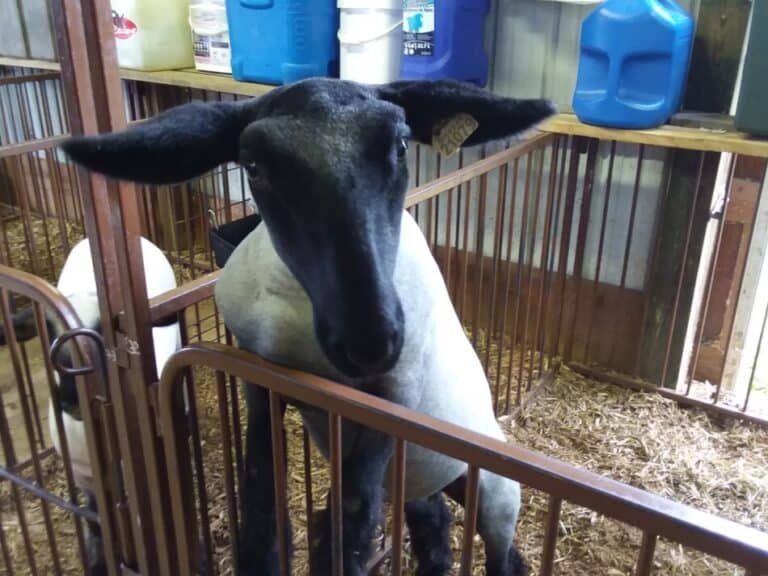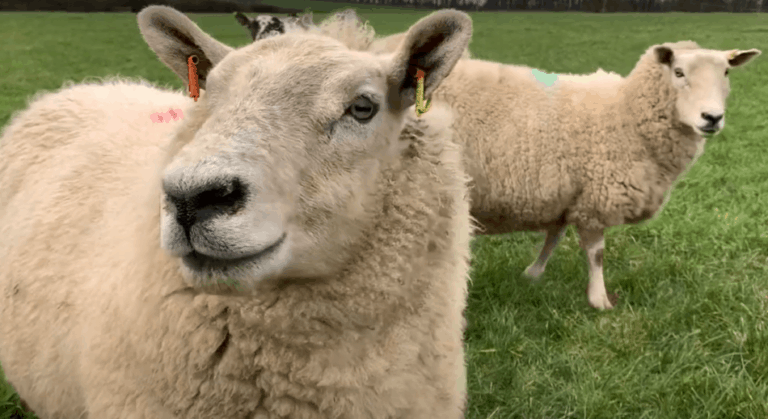Will Rams Hurt Lambs?
When you are getting close to lambing time, you may wonder if you can leave the ram in the lambing area or do you need to take him out for the safety of the lambs? Will the ram hurt lambs?
Generally speaking, you can leave the ram with ewes that are lambing, as long as there is plenty of space in the lambing area and he does not compete with ewe for food or water. This would work on a pasture but be difficult in a barn. If the ram bothers lambs or ewes giving birth, he should be removed.
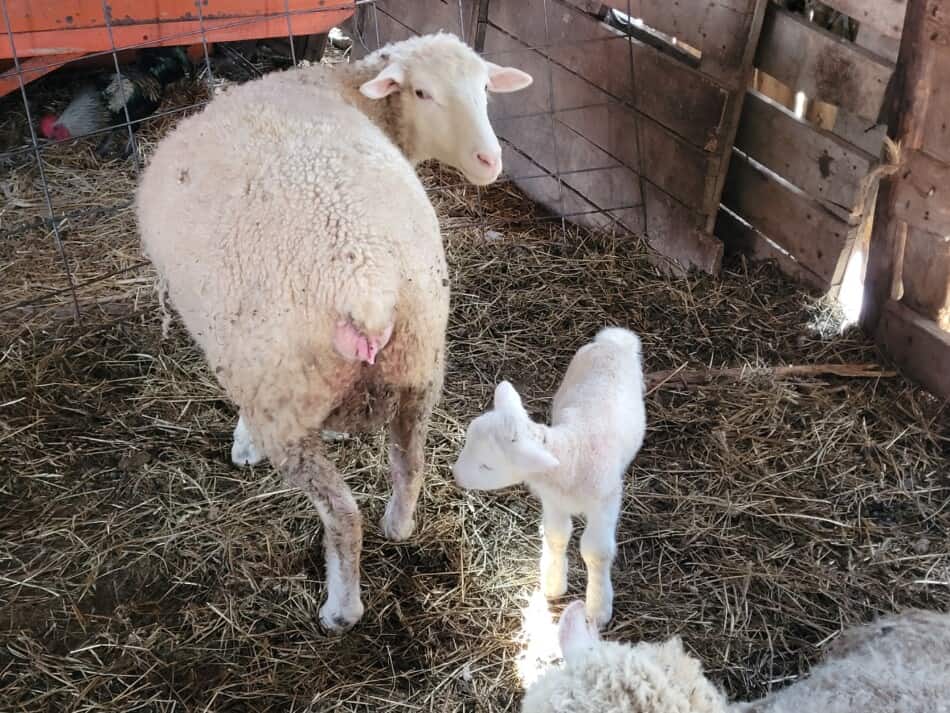
Is Keeping Sheep Easy? goes over the daily schedule and main things we look out for when raising sheep for a living on a family farm.
You can leave rams with ewes and lambs
We keep rams with the flock at lambing. From our experience, we do not see a problem with keeping rams with ewes and newborn lambs.
Our rams do not seem to care and tend to leave the new moms alone. Actually, the rams tend to group up, more of a group in the bigger group, and stick to themselves.
In our flock, rams go in with the ewes starting the first day of breeding season and ending sometime in late June or early July, so any surprise lambs are being born before the winter weather.
We put at least 6 rams with the ewes and our lambing is done outside on pasture, so the ewes have space to go off on their own and bond with the lambs.
Does your ram have ample space and a friend?
The important parts for you to consider are: do you have plenty of other buddies for the ram to hang out with? Is there room for him to give the ewe and new lambs space or are they in a tighter area?
If your lambing area is tight, you are asking for him or another ewe to bother the new mom and her lambs. How far away can the rest of the sheep possibly get if the area is small to begin with?
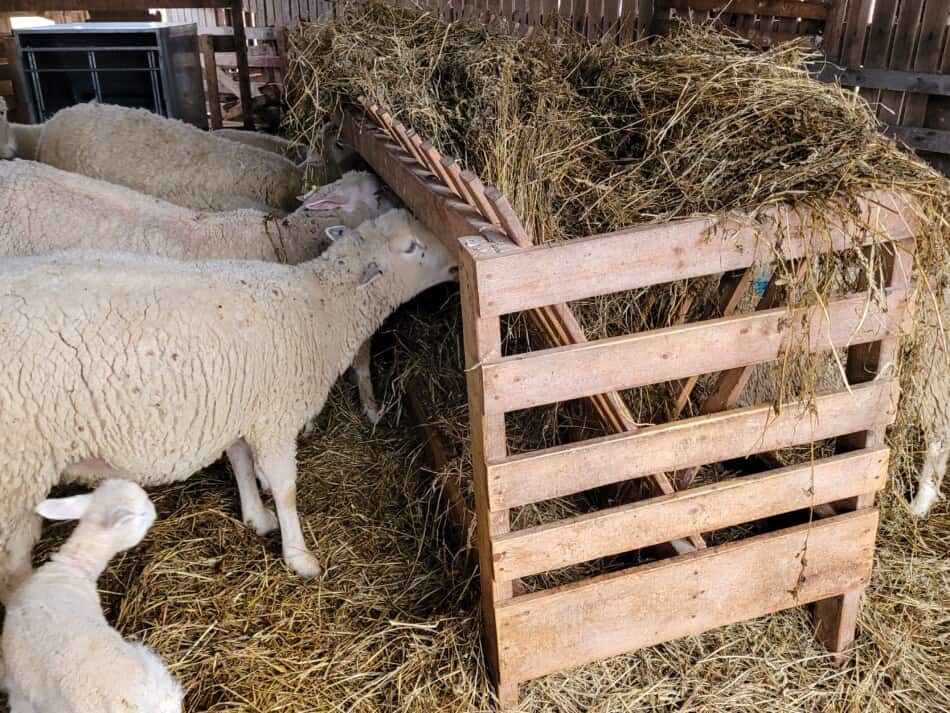
Questions to ask yourself about your ram and lambs:
- Does the flock have space to spread out and give new moms room?
- Is he pestering or just sniffing and leaving?
- Are there other sheep for him to hang out with? (he has to be with someone)
- Who will monitor the ram to make sure he does not mess with lambs?
- Does he have a history of poor behavior towards new lambs from previous years?
It’s possible for rams to bother ewes with new lambs
It is possible, of course, for rams to bother ewes with new lambs and, if that is happening in your flock, it’s your job to get him separated out.
He has the option to behave himself, if he does not choose to behave, he needs to be put somewhere that he can not mess with the rest of the flock.
A new mom is working and teaching her lambs, and when he is interfering with that vital process he needs to be stopped. That’s your job.
You can separate out the ram
He can be put with another ram, a wether or another animal, not necessarily another sheep, with the idea that someone as a pen buddy is better than him being alone.
If you notice him poking around ewes giving birth or with new lambs, keep a close eye on him. Is he just curious and quickly goes on his way now that he has an idea of what’s going on or is he interfering?
If he has been a problem in the past, do not give him a second chance to cause more problems!
Separate him out now and heavily consider getting a ram that can behave himself during lambing, many rams do just fine.
If your ram insists on misbehaving with newborn lambs or new moms, get rid of him.
Replace him with a ram that is easier to work with and save yourself the hassle of extra work during an already busy time. There are plenty of non interfering rams out there for you.
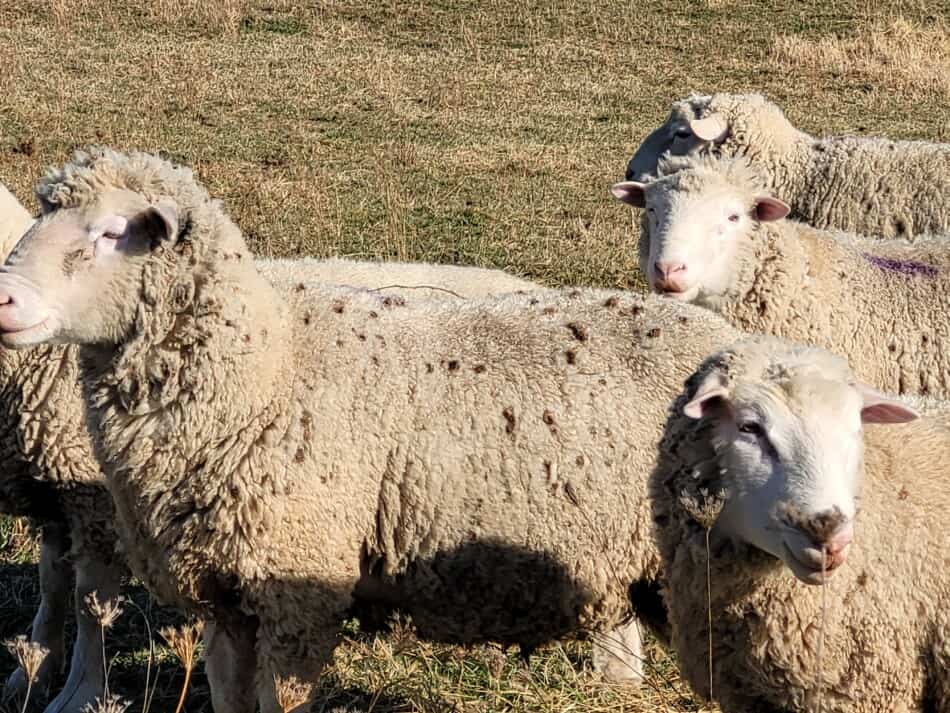
Ram behavior in the flock
During lambing season and for the rest of the summer until the rams are removed, they mostly hang out by themselves rather than mix with the ewes.
Maybe this is because there are multiple rams so they have the option to make a guys only group during the non breeding season.
The ram needs someone to hang out with
I do need to point out a somewhat obvious problem, if you have one ram and the rest of your sheep are soon to lamb ewes, who is he supposed to hang out with that does not have or will soon have lambs?
What I’m trying to point out here is that your ram probably does not want to be off by himself, he’ll want to hang out with the group. That means he’ll be around new lambs.
This does not mean that he gets to bother the ewes or the new lambs or interfere with a new mom bonding with her lambs, but it does mean that he could just be standing around close to them.
Take a few minutes and just watch. Is he messing around with the ewe and her work or is he just standing around, like all of the other sheep?
If you are going to worry, take him out
If you are concerned about the ram, take him out and save yourself the worry.
If you got him from a flock that normally removed rams from the lambing group, consider doing taking your ram out, as well.
If you do not care one way or the other, it will be easier for you to give him a chance to stay with the ewes and wait until you know he is a problem before you go to the extra work of penning him off.
At least around here, the last thing we need during lambing season is to have another job to do!
We start simple and adjust as needed, this way the focus stays on the ewes and lambs, which is exactly where we should be focused, during lambing.
You can watch for problems
You always have the watch and see option. If the ram can behave himself, super. He can stay with the flock and the ewes can do their work without him messing it up. This is what we find with our rams.
If you find that your ram tends to be wherever the new lambs are and he is distracting the lambs from nursing, he needs to be out of there. If he can behave, we find it easier to leave the rams in with the ewes.
Young rams may be curious
If you have a young ram, he may be curious as to what’s going on with all these new smells and he is just checking around to try and figure things out. That is not the same as interfering.
If you have a ram, young or otherwise, that is actively interfering with the ewe and her lambs, he has to go. You don’t want this disruptive behavior to continue.
Other ewes can interfere with newborn lambs
To be clear, this is not exclusively about rams, any of the other ewes in the group could cause problems and need to be kept at a distance, as well.
Ewes steal lambs and that causes a mess a few days later. This is called mismothering and usually ends up with abandoned lambs that were cast aside once the ewe gives birth to her biological lambs.
Older lambs can interfere with newborn lambs
If this is your first lambing season, you may not realize that the older lambs can cause problems, too.
The older lambs have figured out that not only does his mom have an udder full of delicious milk, so do all of the other ewes, so he is now quite the little opportunist.
You’ll need to keep an eye on this type of interference, as well. For this, we use lambing jugs (individual pens) to give the slow to learn lambs some time without competition from the rest of the pack.
I know that other ewes and older lambs sections technically do not fit in this article, but I included them since they will be something you need to look out for at the same time you are monitoring the ram.
Other sheep articles I have written that you may be interested in:
Is Keeping Sheep Easy? Answers From A Full Time Shepherd
Lambing Season: What To Expect And How To Be Ready
Lambing Time Supply List: What You Really Need And What You Don’t
One of my favorite sheep information sites is Sheep 101, which has an entire section on Ram Reproduction, including quite a bit on fertility and breeding season management.
